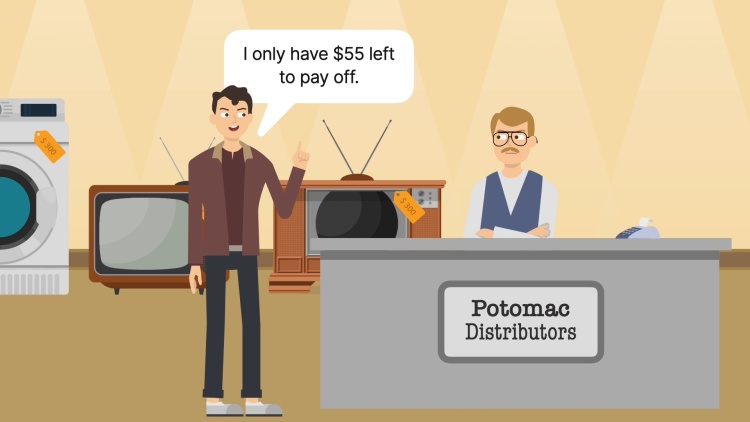Nelson v. United States
United States Court of Appeals for the District of Columbia
227 F.2d 21 (1955)
- Written by Craig Conway, LLM
Facts
Nelson (defendant) periodically purchased merchandise from wholesaler Potomac Distributors (Potomac) for the purposes of resale. On one occasion, Nelson attempted to purchase two televisions and a washing machine from Potomac on credit but was denied because his account was 30 days in arrears in the amount of $1,800. Nelson offered to provide Potomac a Packard car as security for the goods and the past due amount. Nelson told Potomac that he had paid over $4,000 for the car, but failed to disclose that a bank had an outstanding lien on the car in the amount of $3,028.08. Instead, Nelson told Potomac that he only owed $55 on the car. Relying on Nelson’s statements, Potomac delivered the televisions worth $136, taking in return a demand note for the entire indebtedness, past and present secured by a chattel mortgage on the Packard and the television sets. Nelson failed to make the first payment on the debt as promised and left town. Around that time, the Packard was involved in a collision and was subsequently repossessed by the bank. Nelson was convicted of obtaining goods by false pretenses in violation of District of Columbia Code § 22-1301 (1951) and appealed. Nelson was found not guilty on a second count of grand larceny.
Rule of Law
Issue
Holding and Reasoning (Danaher, J.)
Dissent (Miller, J.)
What to do next…
Here's why 907,000 law students have relied on our case briefs:
- Written by law professors and practitioners, not other law students. 47,100 briefs, keyed to 996 casebooks. Top-notch customer support.
- The right amount of information, includes the facts, issues, rule of law, holding and reasoning, and any concurrences and dissents.
- Access in your classes, works on your mobile and tablet. Massive library of related video lessons and high quality multiple-choice questions.
- Easy to use, uniform format for every case brief. Written in plain English, not in legalese. Our briefs summarize and simplify; they don’t just repeat the court’s language.





